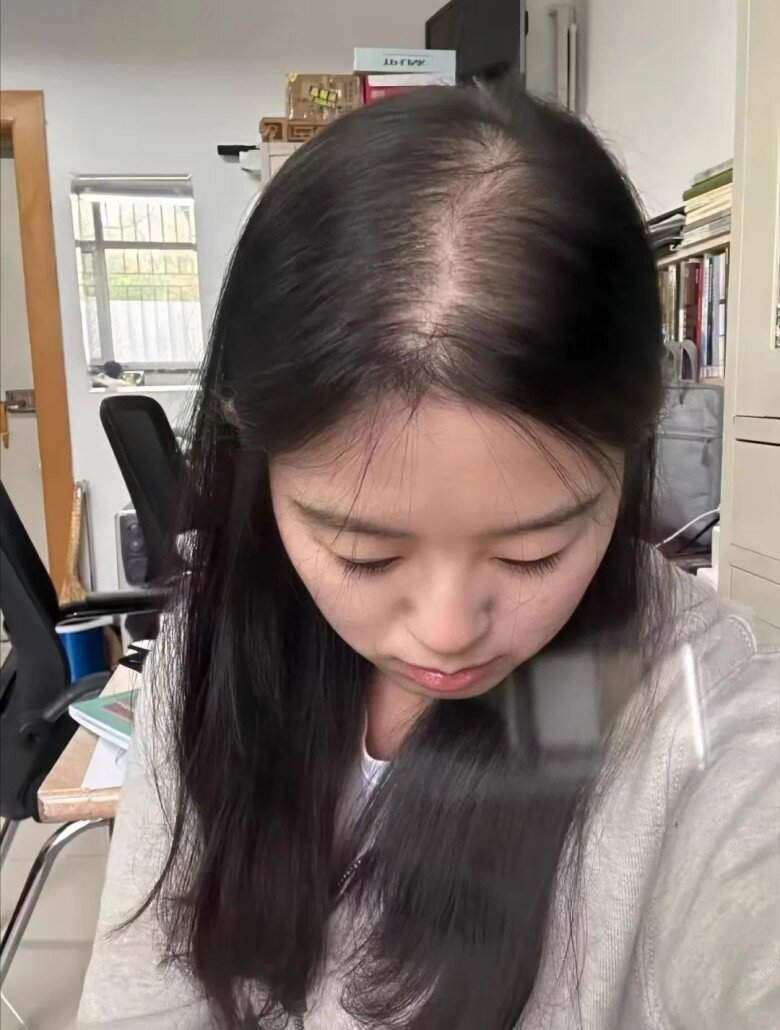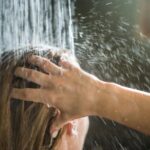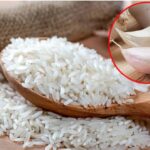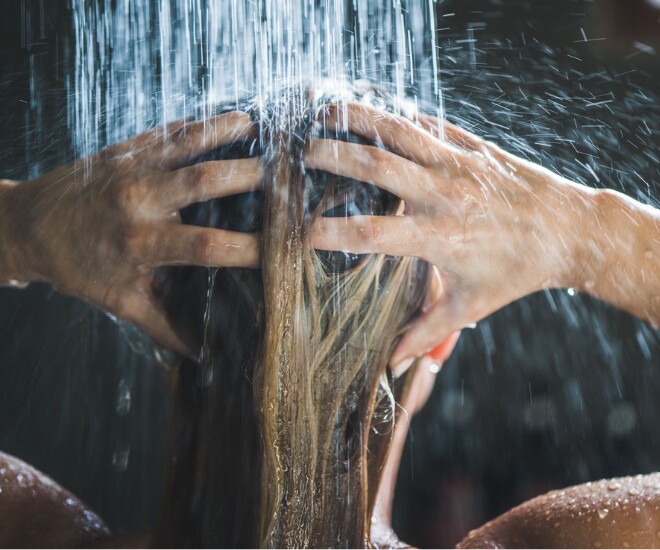
Not washing your hair for extended periods can lead to several hair-damaging risks.
Why does washing your hair infrequently lead to hair loss?
Washing your hair too infrequently can lead to hair loss because when it is not cleansed regularly, oil, dirt, and dead skin cells accumulate on the scalp, clogging hair follicles and creating an environment conducive to bacterial and fungal growth, particularly Malassezia fungus. The overgrowth of fungus and bacteria not only causes inflammation and itching but also weakens the hair follicles, leading to hair loss. Additionally, seborrheic dermatitis caused by oil buildup makes hair more prone to breakage and inhibits healthy regrowth.
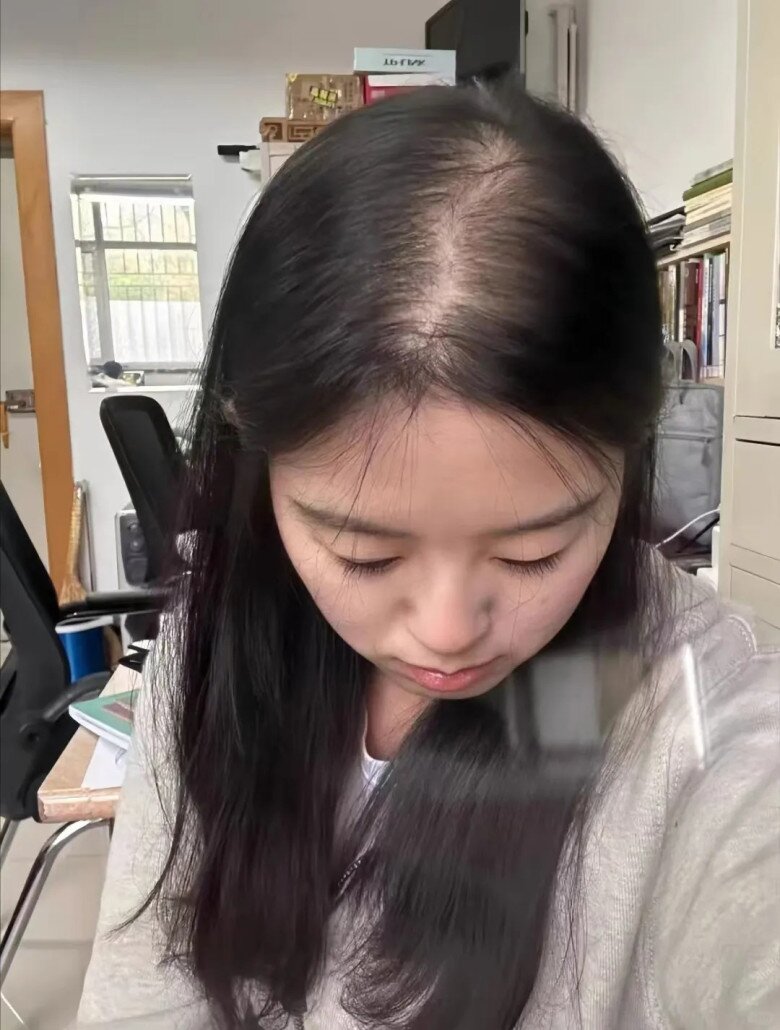
When the scalp is clogged, hair follicles become suffocated and weakened, hindering the growth of new hair and resulting in thinning hair.
Signs that your hair is being damaged due to infrequent washing
1. Oily Hair
The most obvious sign of not washing your hair enough is greasy, lifeless hair. When the scalp is not cleansed regularly, oil accumulates, making the hair sticky and heavy. Some people may experience this after a day or two of not washing their hair, while others may go longer before their hair becomes oily. Additionally, oily hair not only makes one’s appearance seem unkempt but can also emit an unpleasant odor! The oil on the scalp, combined with dead skin cells, creates an ideal environment for bacteria to thrive and produce a foul smell.
2. Excessive Dandruff
Dandruff is not just a result of infrequent washing but is actually due to the buildup of natural oils on the scalp. These oils are important for protecting and moisturizing the scalp. However, when you don’t wash your hair often enough, the oils accumulate, combining with dead skin cells that are constantly being produced. If you don’t wash frequently enough, this buildup creates a favorable environment for microorganisms, especially Malassezia fungus, to thrive.
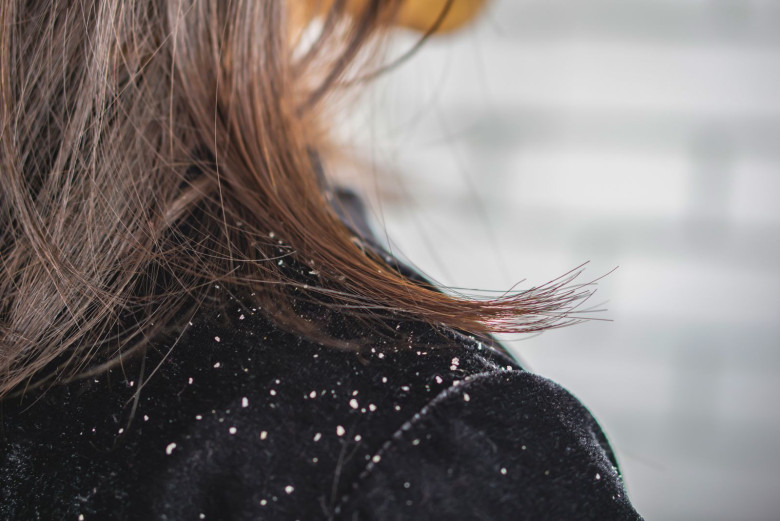
As the fungus proliferates, its by-products can irritate the scalp, leading to dandruff.
3. Itchy Scalp
An itchy scalp could be a sign that you’re not washing your hair frequently enough. The buildup of hair products, dirt, sweat, and dead skin cells creates an environment conducive to microbial growth, leading not only to dandruff but also to seborrheic dermatitis, which causes scalp itching.
4. Dull Hair
If your hair has lost its shine, it could be due to the buildup of styling products, making the hair shaft rough and less reflective. Using a clarifying shampoo will help restore its vibrance, especially when paired with a gloss-enhancing conditioner.
5. Abnormal Hair Shedding
Increased hair shedding can also be a sign of infrequent washing. Seborrheic dermatitis, caused by excess oil, is a common reason for hair loss. Malassezia fungus thrives on oily scalps, leading to inflammation and irritation. While there is no conclusive research linking chronic scalp inflammation to hair loss, regular washing can help prevent this issue.
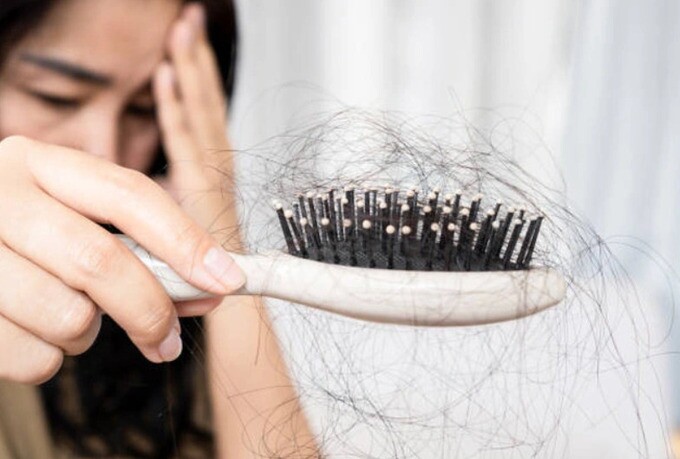
Abnormal hair shedding is also a warning sign that your scalp needs more frequent washing and care.
How often should you wash your hair?
Determining a reasonable hair-washing frequency is crucial as it affects the health of your scalp and hair. However, the frequency varies depending on your scalp type and hair texture. If you have a dry scalp and natural hair that doesn’t require frequent styling, washing your hair once or twice a week is usually sufficient.
On the other hand, if you have oily skin or frequently use dry shampoo, change your hairstyle often, or use a lot of styling products, you should increase the frequency to two to three times a week to prevent issues like dandruff and hair loss.

While washing your hair too frequently can be damaging, washing it too infrequently can also have negative consequences. Therefore, it’s essential to find the right balance to maintain the health of your scalp and hair.
Simple Home Remedies for Hair Loss and Breakage
1. Use Suitable Shampoo and Conditioner: Opt for products specifically designed for weak, brittle, or thinning hair. These shampoos typically contain nourishing and protective ingredients while providing a gentle cleanse without further drying or damaging the hair. Avoid products with harsh chemicals.
2. Moisturize Your Hair: Hair breakage can be due to a lack of moisture. Apply hair masks or natural oils like argan or coconut oil to hydrate your hair. Regular moisturizing helps hair recover and become stronger.

3. Scalp Massage: Gently massage your scalp daily to stimulate blood circulation, promote hair regeneration, and strengthen hair follicles. This can help reduce hair loss and encourage new growth.
5. Regular Trims: Get your hair trimmed every 6-8 weeks to remove split ends and damaged hair. This encourages healthy regrowth and prevents breakage due to weak hair.
The Winter Hair Woes: Why the Cold Season Leaves Your Locks Lackluster and How to Fight Back
With winter comes the dreaded season of hair loss, often a result of environmental factors and lifestyle habits. But fear not, there’s hope for those struggling with this issue! It’s time to take control and combat this problem with some effective strategies. Are you ready to discover the secrets to healthier hair and bid farewell to excessive shedding? Let’s dive in and explore the solutions together!
Title: “The Bald and the Beautiful: Unlocking the Secret to Wealth and Success”
In ancient times, a bald head was considered a sign of greatness, destined for a glorious future. But why was this the case? Uncover the fascinating history behind this unique belief and explore the cultural significance it holds. Delve into a world where baldness was not just a physical attribute but a symbol of power and success.

























